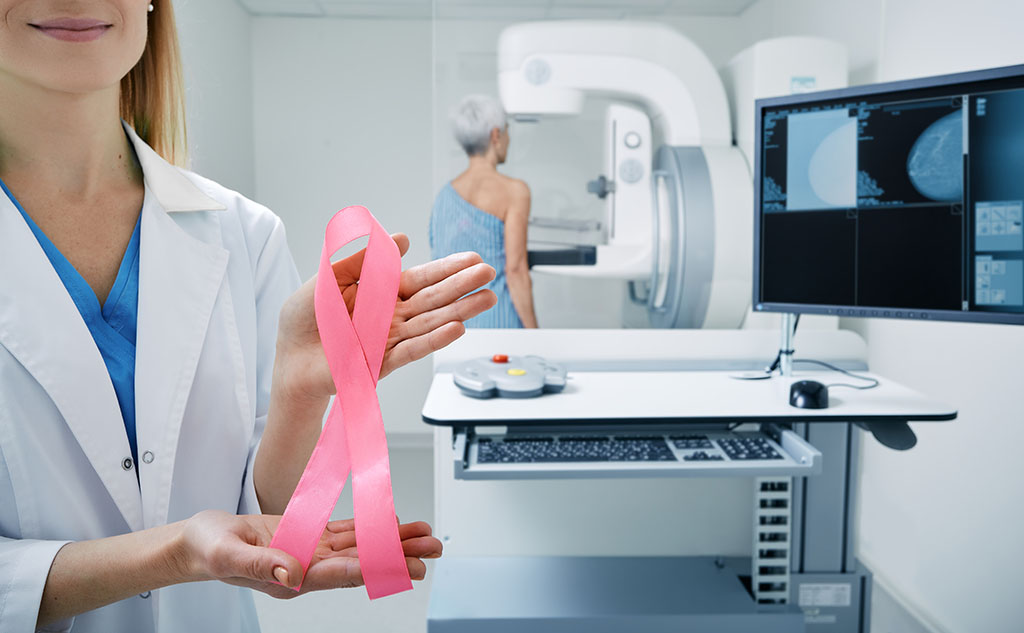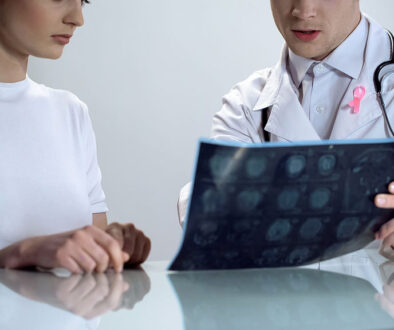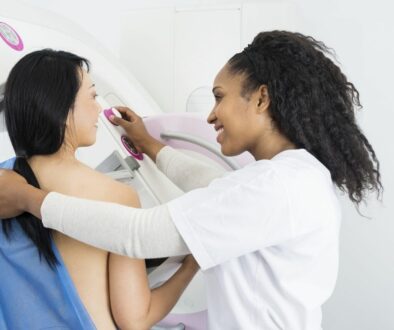We Answer Your Important FAQs About When to Get a Mammogram
Regular mammograms play a crucial role in the early detection and prevention of breast cancer, potentially saving lives. This is why we want to make it as convenient as possible for you to get one. Because we offer 3D mammography services, you can schedule your mammogram for the same time you have your annual exam. But many women have questions about when to get a mammogram or how to prepare for one.
We’ll tackle your frequently asked questions about when to get a mammogram, why they are important, and at what age you should start having them.
What Is a Mammogram?
A mammogram is a specialized X-ray imaging technique used to examine breast tissue for any signs of abnormalities or potential cancerous growths.
We use state-of-the-the art 3D mammography. A 3D mammogram obtains an estimated 300 images that allow radiologists to have a better view of the breast tissue. (You can review the differences between a 2D and a 3D mammogram in our earlier blog article.)
When To Get a Mammogram: When Should I Start?
The American Cancer Society (ACS) recommends that women with an average risk of breast cancer should start having annual mammograms at the age of 40. However, there are several other considerations that are important to mention. If you have a family history of breast cancer or if you’ve had breast cancer in the past, you may need to start having a mammogram earlier.
When to get a mammogram also hinges on whether or not you’re exhibiting symptoms.
How Often Should I Have a Mammogram?
Understanding when to get a mammogram is only part of the picture: You must also consider how often you should be screened. We follow the guidelines of the American College of Obstetricians and Gynecologists, which indicates that:
Women at average risk should start mammograms at age 40 and continue every 1 to 2 years until age 75.
Are There Any Risks Associated With Mammograms?
Mammograms use extremely low doses of radiation, and the benefits of early detection far outweigh any minimal risks.
What If I Have a Family History of Breast Cancer?
As we’ve mentioned earlier, a history of breast cancer is an important factor when deciding when to get a mammogram. Talk to us and we can provide guidance on how often you may need a screening. In addition, you may need other screening methods such as a breast MRI. We may even suggest genetic testing.
Can I Get a Mammogram While Breastfeeding or Pregnant?
Because mammograms do use a small dose of radiation, they are not recommended when you’re pregnant or breastfeeding. Mammograms can be resumed six months after you finish breastfeeding.
When Should I Get My First Mammogram?
A lot of this hinges upon your personal health history. When deciding when to get a mammogram, we consider factors such as:
- Your age
- Your health
- Your family’s health history
- Any breast abnormalities or previous cancer
If you have an average risk, then the American College of Obstetricians and Gynecologists guidelines state that you should begin having mammograms at age 40 if you are of average risk.
Can You Get a Mammogram at 30?
According to the Yale School of Medicine, most breast cancers that are detected during regular mammography screening are in women who are age 50 and older. For that reason, women under 40 are considered too young to start annual screenings.
However, there are a few exceptions: If you have physical symptoms, if you’ve found a mass in your breast, breast changes, or you have a genetic mutation, then screening may be appropriate—even at age 30.
How Do I Prepare for a Mammogram?
Before your mammogram, avoid using deodorants, antiperspirants, lotions, or powders on your underarms or breasts. These products can interfere with mammogram images. You may also wish to wear a two-piece outfit for ease of undressing during the procedure.
Questions About When to Get a Mammogram Screening? Just Ask Us!
Regular mammograms are a crucial component of maintaining breast health and detecting breast cancer early. The age at which you should start getting mammograms and the frequency of screenings may vary based on individual risk factors and family history.
We’ve based our practice philosophy on caring for much more than your gynecological health—we want you to be healthy in every aspect of your life. For decades, we’ve provided compassionate, comprehensive care as gynecologists in Raleigh.
We’ve also been recognized for clinical excellence by the National Committee for Quality Assurance. In addition, we’re also certified through the Blue Quality Physician Program by Blue Cross and Blue Shield.
Are you past due for a mammogram? Contact us today to schedule an appointment.




